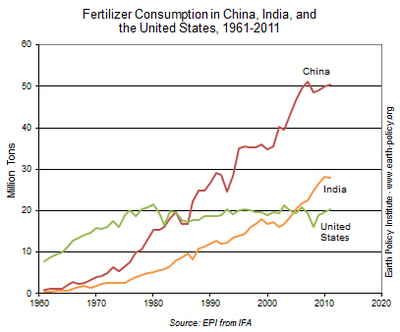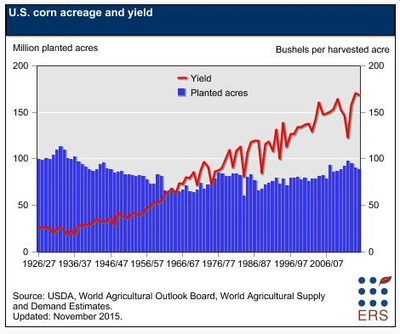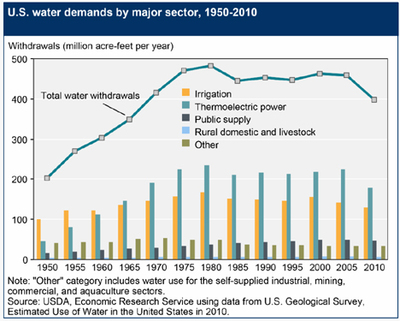Open Letter To Two Anti-Ethanol Professors - Jim Doti and Laurence Iannaccone
 |
It's Time To Rethink The Value Of PhD - Redux
By Marc J. Rauch
Author of THE ETHANOL PAPERS
Exec. Vice President/Co-Publisher
THE AUTO CHANNEL
Hi Jim and Larry -
 Marc Rauch |
I noticed that the article lists you both as "economics professors" at Chapman University. I visited the Chapman website and confirmed that you are both employed by the school in the Economics Department, and that you both have Ph.D. degrees. That's fantastic.
But then it makes me wonder why you understand so little about:
-
1. Supply & Demand
2. Commodity Speculating
3. Reasons for Mandating Domestic Supplies of Fuels
In times of excessive fear, ebullience, and the presumed opportunity to make money; people will overreact. They hoard supplies, they overindulge, they price gouge, and they take their hard-earned savings and invest it in stupid things. These actions typically cause prices to rise...even soar. Often the "soaring" leads to crashing, something that the commodity investment markets are famous for. At least two events have precipitated the frenzied activity that are the underlying issue of your editorial: the Energy Policy Act of 2005, and the Coronavirus pandemic of 2020. I know you understand this, in fact, I would go so far as to say that most people over the age of 16 would understand how the two events would have resulted in frenzied/panic buying...and they don't have any type of economics degrees that you guys have.
Regarding the mandating of domestic supplies of fuels, this item may require a bit more intellect or worldly experience than what a typical 16-year old would have, but I don't think that your misquoting the Energy Policy Act of 2005 is very helpful to anyone's understanding.
The Energy Policy Act of 2005 did not - DID NOT - require "fuel producers to blend four billion gallons of corn ethanol into their gasoline by 2006 and 7.5 billion by 2012." It required the use of a biofuel. The biofuel did not have to be corn ethanol, or ethanol, or any particular alcohol product at all. It so happens that corn-based ethanol was selected by the oil industry because it best answers what they were looking for: a safe, reliable, healthy and economical option, relative to the amount of fuel required and the time frame for following the law. While the ultimate "beneficiary" of the decision to use corn ethanol may be the corn industry, it doesn't mean that it is correct to make them the villains of any real or imagined criticism of the Energy Act. The proper reference should be to just be satisfied, or even happy that we had people who were ready and willing to meet the need. Otherwise, we would have been stuck with another poison solution from the oil industry, like MTBE. Why don't you guys know this? The only thing I can surmise is that Larry's time as a National Fellow with the Stanford Hoover Institution had a negative influence on him (Stanford and Hoover Institution have hosted a number of ethanol-hating knuckleheads).
By the way, the world wide food price spike you include in your editorial had nothing to do with the Energy Policy Act of 2005. You are referencing information that began with an erroneous World Bank report from more than a dozen years ago. This is now 2020, and in the time between the World Bank's fallacious comments about corn ethanol and now, they have retracted that report two or three times. As Ph.D. professors you should have known all this.
Your editorial touches on some other things, which I don't think would necessarily be covered as Economics professors, but since you're writing about these issues I would think you would have taken the time to do some research to make sure you were presenting the facts correctly. For example, you write that 'U.S. farmers diverted millions of acres of land to growing corn'. If they did, so what? If the land to growing corn had been previously used to grow a less profitable or lower demand crop, what's the problem with that? If you're contending that the farmers wrongfully used land that had other more bucolic purposes, then you're wrong. Farmers today, and for the last decade, have been using less land to grow corn than in the past. Moreover, they grow far more corn on that land, with less water and fertilizer than ever before (see charts below). I noticed that you don't cite any references for your information, why not? Would you prefer more oil drilling and fracking? Have you seen any photographs of what they do to the land?
 |
Your editorial states that the land use has "Ironically...increased overall CO2 emissions, much to the chagrin of the environmentalists who had championed the mandate as a way of fighting global warming." The first thing that comes to my mind is which environmentalists are you referring to? Do you mean the fraudulent global warming environmentalists who were exposed in Michael Moore's latest documentary PLANET OF THE HUMANS? There's a funny side to this, by the way, the film's only solution to the (non-existent) problems is basically the eradication of 50% or more of the humans on Earth. You must know that with each increase in the world's population of humans and other animals that there is an increase in the amount of CO2 emitted into the atmosphere. So are you two guys also suggesting a mass "kool aid" party?
Your editorial also makes some other fallacious statements that appear to come straight from the American Petroleum Institute's book of ethanol lies, exaggerations, and wishful thinking. For instance, you write:
-
"The negative effects of this forced usage of corn-based ethanol in refined petroleum include higher gas prices (alcohol costs more than oil per British thermal unit) and more than 30 million acres
lost to subsidized corn production an area that vastly exceeds all the land lost to urban, suburban and exurban sprawl over the past century. And while the U.S. now has inordinate supplies of excess alcohol,
fuel producers cant use it, since adding any more to gasoline will damage car engines."
Jim and Larry, this is one large paragraph of bullshit.
The addition of ethanol to gasoline reduces the price that consumers pay to fill their tanks. Here's a few reasons: First, ethanol costs less than gasoline. When you add a lower price ingredient to other ingredients it brings the price average down, not up.
Second, if ethanol was not used as the oxygenate, then the oil companies would use a greater amount of aromatics. The aromatics cost more than the price of ethanol and more than the price of the gasoline. This would increase the price per gallon of fuel.
Third, you mention BTUs (British Thermal Units) as if you know something about this issue. I guarantee that whatever you think you know is about kindergarten level. Ethanol provides more power than gasoline because it permits higher compression in internal combustion engines. The energy content between ethanol and gasoline is irrelevant because the lower price of ethanol almost always exceeds the difference in raw BTU measurements...and because burning gasoline is so inefficient, gasoline loses about 25% of its energy value. This increases the net gain of using an ethanol-gasoline blend. On top of this, some ethanol-gasoline blends (i.e., E30) actually produce better MPG results than E0, even when used in gasoline-optimized engines.
Fourth, if consumers didn't use ethanol-gasoline blends they would have to frequently use engine-treatment additives (at least, it would be recommended that they do). The purpose of these additives would be to add octane boosters and cleaning ingredients. The cost of a small bottle of these additives typically equal the cost of about 3 gallons of gasoline. This increases the total cost to fill a tank.
I addressed the "lost land" issue above, but I'll add that if the land is used to grow something that is traded in routine commerce, then it is not lost. Furthermore, the very same corn that is used for ethanol is also used as high-protein food for animals that we eat. The remnants are also used for other products. There is nothing lost, nothing sacrificed. Why don't you guys know this?
And then you have the absolute insolent nerve to say that adding more ethanol will damage engines. This one little piece shows that you guys have absolutely no knowledge of what you're talking about, or that you simply lifted nonsense from API and included it in your editorial. Either way, you two should be ashamed of yourselves. Chapman should be ashamed of you. Your students should be ashamed of you. Ethanol cleans engines. Ethanol burns clean and leaves no carbon deposits. Ethanol is compatible with more types of rubber, plastic, and metal than gasoline and aromatics. Long before ethanol could have the opportunity to corrode some engine component, gasoline and aromatics would have already started corroding the parts.
Jim and Larry, you had the opportunity to write and publish a legitimate editorial, asking legitimate questions about why rubbing alcohol is not available. You could have provided some really beneficial and interesting information. Instead, you chose to write nonsense about a subject in which you appear to be totally ignorant. I'm including below some links to papers I've published. Each paper provides numerous links to external resources and references. Use 'em. Don't publish another ignorant anti-ethanol article unless you truly come up with some negative information that is factually correct.
One other thing, if you're looking for hand sanitizer, I have some. I make it from 200 proof culinary-grade ethanol that I've purchased openly without any interference from the FDA. When I dilute it with aloe-vera the mixture is about 73% alcohol...more than enough to kill Coronavirus (so I'm told). Let me know how much you need and I'll give you a reasonable price quote. If I can't supply enough, I know of several ethanol distilleries that are selling it. I can put you in touch. This is generally called "capitalism," perhaps you guys have come across this word in your lectures.
Have a great weekend, give it all some thought, and respond if you have the courage.
SEE:
• The Irrelevance Of BTU Rating - Big Oil's Gimmick To Hoodwink The Public
• The Irrelevance Of BTU Rating - Revisited
• Every Spark-Ignited Internal Combustion Engine Ever Produced Has Been Damaged By Gasoline
• Why Do Small Engines Suffer From Ethanol Problems?
• Ethanol Does NOT Suck Water Out Of The Air
• Famous Manufacturer of Anti-Ethanol Additives Proves Ethanol's Safety and Benefits
• Automotive Aftermarket Saturated with Snake Oil Engine Additives




